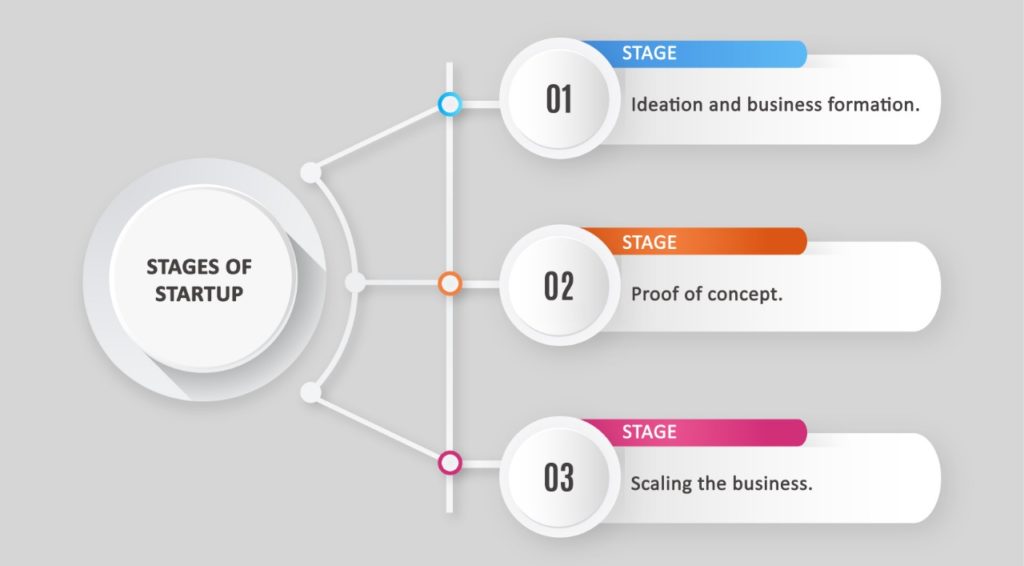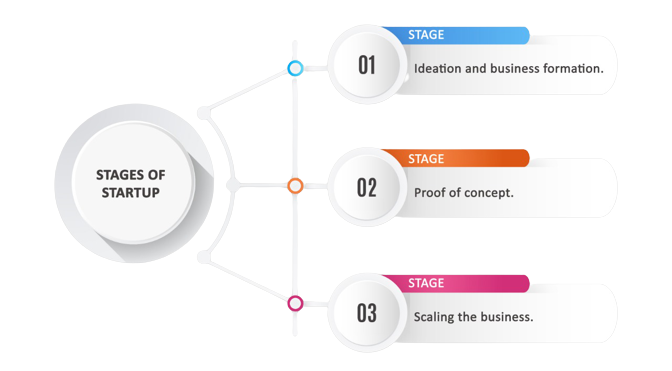In the current times, Startup culture is applauded for being a way of providing innovative products or services, solving problems, creating wealth, building a career, and driving the economy. It has allowed youngsters, otherwise not interested in the academic pursuit, but otherwise super talented, to become the masters of their future. Because of the availability of technology, experienced mentors, and capital, virtually anyone can create a business plan and start a company. But what is a Startup and what are the stages in the life of a Startup? Let’s delve a little into the meaning of this term.
What Is A Startup?
A startup is typically defined as a new business that is created to solve a problem faced by a specific segment. The term ‘startup’ refers to any type of entrepreneurial venture that is built to scale rapidly. Whether it does so, entirely depends on the strength and profit margins built into the business. Like all businesses, startups go through phases of growth and decline. These can be defined and evaluated for effectiveness.
David Skok, General Partner at Matrix Partners and an early member of the Board of Directors at HubSpot says that startups can be defined by the following three stages:
- Finding the right product-market fit. (Ideation Stage)
- Create a repeatable, profitable and scalable sales model. (Proof of Concept Stage)
- Scale up the business. (Scaling)

Business Founders start companies for varied reasons, some are after the money, others strive to solve a business or a social problem, and then there are some who just don’t want to work for a boss. All types of companies or startups go through similar stages in their growth journey.
Ideation
This is the very first step in the journey of a Startup. Here the Founder/s brainstorms on an idea or a problem that needs to be solved and builds a business plan around it. Some thought-provoking questions that will help you define your vision for your startup:
Why do you want to start this company?
What problem are you looking to solve?
Why do you want to solve this problem now?
The ideation stage is to define what you are going to do and define the company’s competitive edge. The founders fine-tune the root reasons behind starting up and then begin to acquire customers. It is at this stage that the founder starts identifying the startup team, building a website, and selling and delivering the product or service. This stage is where the company steps in to prove that there is a market for their product, that any competition can be taken on.

Proof of Concept
The next stage is the Proof of Concept. This is the stage when the startup starts gaining traction. This is when a company starts to iron out the kinks in its business plan and make it more sustainable and profitable.
This stage typically includes making necessary improvements to the product or services being offered to the customers. From within the company, this is also when many startups are looking to grow their sales and marketing teams, pick an ideal customer demography based on their modified product or service, and define a work culture that will provide a long-term advantage to the company.
The primary bullet point of this stage is to bring the company on a stable footing and display that the company can execute its business plan and is growing and retaining a solid customer base. This is also the stage where one gets in the process of acquiring seed funding for the company.

Scaling
The final stage of a startup is the scale-up stage. This is where a startup company will take on board additional co-founders, infuse additional capital, and transition to growing the company at a rapid scale.
Depending on the business, that could entail opening additional offices, adding additional offerings to the service bouquet or product line, and building a robust sales and technical team. During this startup stage, there should be enough data to clearly articulate a competitive advantage and showcase how to leverage that advantage to an even broader customer base.
This phase typically includes a Series A investment round led by a Venture Capital company that gives guidance and support to help the company grow into an established, sustainable entity.


